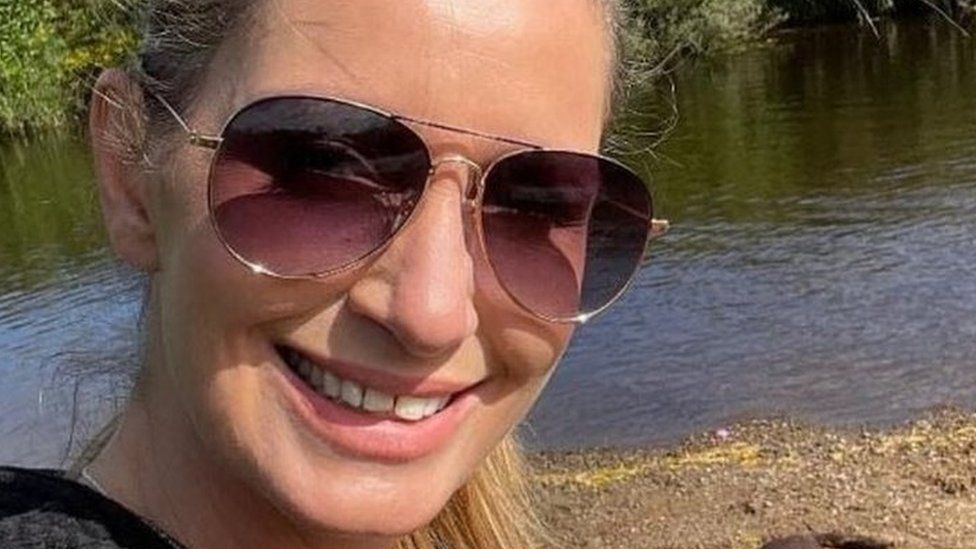
Nicola Bulley was last seen during a riverside walk on 27 January
By Lynette Horsburgh & Tom Mullen
BBC News
Nicola Bulley died as a result of drowning and was alive when she fell into the water, her inquest has heard.
The 45-year-old went missing from St Michael’s on Wyre in Lancashire in January, prompting a major search.
It took more than three weeks for her body to be found in the River Wyre – a mile away from where she was last seen.
Home Office pathologist Dr Alison Armour, giving evidence at County Hall in Preston, said there was “no evidence” she was harmed.
The pathologist also said Ms Bulley had not been drinking before her death.
Coroner Dr James Adeley asked her: “At the time of her death she had no alcohol in her bloodstream?”
Dr Armour replied: “That’s my opinion.”
Nicola Bulley’s mobile phone was found on bench near the spot where she was last seen
The pathologist also dismissed any third party involvement or that any harm had come to Ms Bulley on the morning of her death.
Paracetamol and a prescription beta-blocker called propranolol were also found but in very small amounts, not considered to be an “overdose”, she said.
She noted Ms Bulley’s body had clearly been in the river for a period of time.
Ms Bulley’s partner Paul Ansell and sister Louise Cunningham are among the witnesses set to give evidence at the two-day hearing.
The mortgage advisor’s disappearance led to intense public interest, criticism of police and media, and a social media frenzy of conspiracy theories.
Lancashire Police came under fire after revealing Ms Bulley’s struggles with alcohol and perimenopause.
She vanished while walking her dog by the river after dropping off her daughters, aged six and nine, at school.
Image source, Police handout
Nicola Bulley’s inquest is expected to last two days
Her dog was found shortly afterwards and her mobile phone was discovered on a bench overlooking the water – still connected to a work conference call.
A police underwater search specialist said he believed Ms Bulley fell into the river before floating downstream.
In a video shown to the court, PC Matthew Thackray said: “There is a large vertical slope from the bench and into the water.
“On the day there was a steady flown downstream.
“The river was 4C, so almost freezing, and if she fell in the muscles would probably seize making it difficult to swim properly.”
He estimated she would have floated at a “metre a second” downstream.
Prof Michael Tipton, from the University of Portsmouth who supports search and rescue operators such as the RNLI, said just two breaths of water would have been a “lethal dose”.
“We estimate the temperature would have been around 3 to 5C, so there would be a particularly powerful cold-shock response,” he said.
Cold water expert Dr Patrick Morgan said Ms Bulley may have only been able to hold her breath for “one or two seconds at best” in the river.
“On the occasion that the individual has taken that initial gasp on the surface of the water and then gone below, the duration would be 10 seconds that you could hold your breath, and very likely one or two seconds at best.”
Why not follow BBC North West on Facebook, Twitter and Instagram? You can also send story ideas to northwest.newsonline@bbc.co.uk
Related Topics
Related Internet Links
The BBC is not responsible for the content of external sites.








